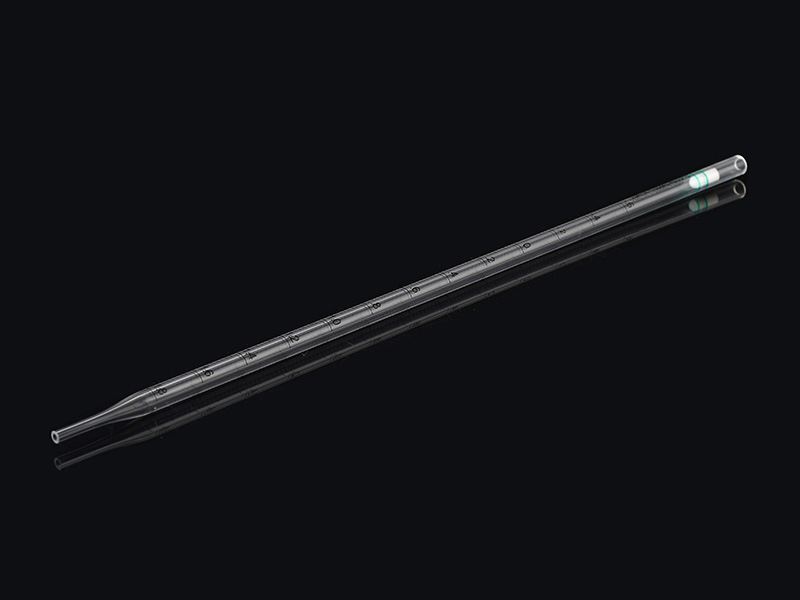A serological pipette is an essential tool for serology laboratories. It is used to transfer liquids from the test tube to the laboratory's reagents. There are three types of pipettes: open-end, closed-end, and shorty. Each has specific capabilities. The same controller can be used to control all pipette sizes. When used correctly, each type can be more accurate than the other.
There are ten main types of serological pipettes: disposable, reusable, and disposable. Each type is designed to meet different requirements, including volume, number of drops per ml, and bulb draw. In addition, they are available in bulk bags of 25 pipettes. The individual pipettes are wrapped in fiber-free paper. The disposable pipettes have a uniform mouthpiece and are color-coded for easy identification.

Unlike traditional pipettes, serological pipettes are disposable. This type of pipette is made of high-grade polystyrene, which is ideal for precise liquid handling. These disposable serological pipettes are widely used for bacterial research, tissue culture, and clinical research. These pipettes come in many different styles, materials, and functions. When choosing a pipette, be sure to consider the use in your laboratory.
A serological pipette should be used as directed by the manufacturer. They have bi-directional graduation markings to make the sample flow more accurately. A bi-directional graduation is ideal for varying volumes. The graduation is also easy to read. The sloping scale on the pipette's scale makes it easier to understand. The sloping graduations are also useful for interpreting the volume.
For transferring liquids, mixing chemical solutions, or laying reagents of different densities, a serological pipette is the best choice. These instruments require great attention to detail and allow for precise control down to the milliliter level. Typically, the pipete comes in bulk packs of 25-50, and are designed for use with a motorized pipette controller. The smaller body size allows for easier handling.
These disposable pipettes are ideal for transferring liquids and mixing chemical solutions. They are available in different sizes and are ideal for transferring and laying reagents of varying densities. These types of pipettes are also available in a range of sizes. For most cases, a serological pipete should fit all pipettors. In some cases, a micro-pipette is used in conjunction with a serological pipette.
A serological pipette is a must-have for serology labs. The pipette is used to deliver varying volumes of liquid. The pipette should be handled gently. Using a pipette with excessive pressure could cause the filter to damage or contaminate the sample. For larger volume samples, it is best to use firmer pressure on the trigger. The pipette will be able to transfer the sample much faster.
The serological pipette is a great tool for serology laboratories. These instruments are made of polystyrene and are available in a range of different sizes and styles. They are a must-have for any laboratory, but are also useful for clinical applications. They can be purchased at any pharmacy or online. You can purchase them for as little as a penny. A few types of disposable pipettes are available.
A serological pipette is a versatile instrument for many labs. They can transfer liquids, mix chemicals, and lay reagents of different densities. A serological pipete can be used for a variety of laboratory processes. Its accuracy and versatility are essential to successful lab work. These tools are indispensable in the laboratory and require high concentrations of reagents. In a lab, a pipette should be pre-sterilized and disposable.
A serological pipette should be compatible with both liquids and gases. A pipette should not contain a solution that is toxic to humans. It should also be able to handle the liquids. If a sample contains a large amount of water, then you need to consider the size of the sample to be transferred. A higher volume will mean a higher risk of contamination. You will also need to make sure the liquids are clean before transferring them.
A serological pipette is an important laboratory instrument. They measure the volume of liquids and are often used in chemical labs. They are often used in combination with a pipette dispenser to create a partial vacuum. A serological pipete can be made of plastic, glass, or sterilized. If you need a larger capacity, you can choose a volumetric pipete.

 简体中文
简体中文











